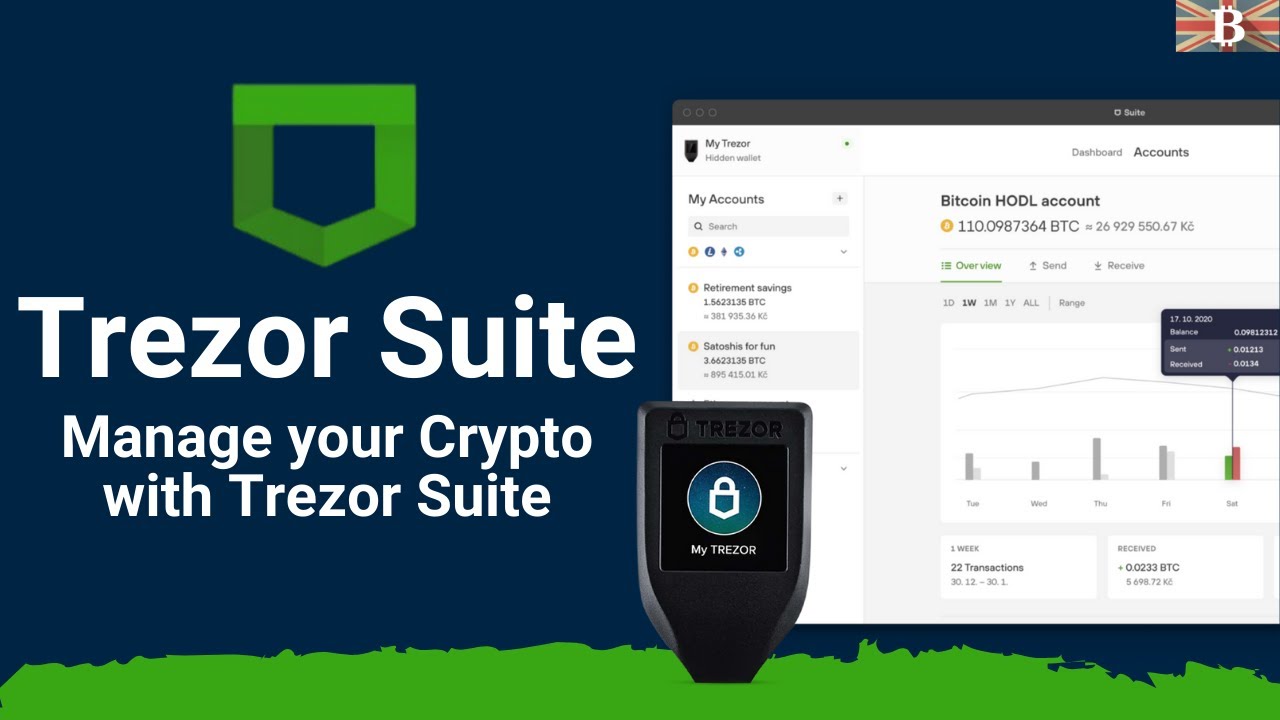
In the world of cryptocurrency, security is paramount. With the rise of digital currencies, protecting your assets from hackers, fraudsters, and accidental loss has never been more important. This is where Trezor, one of the most respected names in hardware wallets, comes into play. trezor suite has been a trailblazer in providing a safe and user-friendly solution for securing cryptocurrencies.
What is Trezor?
Trezor is a hardware wallet developed by SatoshiLabs, a Czech-based company. It was launched in 2014 and quickly gained popularity due to its high level of security and ease of use. The Trezor wallet is designed to securely store private keys offline, making it nearly impossible for hackers to access your funds remotely. This offers a significant level of protection compared to online wallets or exchanges, where private keys are stored online and can be vulnerable to attacks.
How Does Trezor Work?
At its core, Trezor is a small, portable device that communicates with your computer or mobile phone via USB or Bluetooth (depending on the model). When you use Trezor, your private keys are stored in the device itself, not on your computer or phone. This ensures that even if your device gets compromised by malware, your private keys remain safe.
To interact with the Trezor wallet, users typically connect it to their device, input a PIN code, and use a recovery seed (a list of words) to back up their wallet. The recovery seed is vital in case the device is lost, damaged, or stolen. As long as you have this backup, you can recover your assets on any compatible device.
The Security Advantages of Trezor
Trezor is renowned for its robust security features, which set it apart from many other crypto wallets. Some of the key advantages include:
- Offline Storage (Cold Storage): By keeping your private keys offline, Trezor minimizes the risk of online attacks such as phishing, malware, or hacking. This makes it one of the safest ways to store cryptocurrencies long-term.
- PIN Protection: Each Trezor device comes with PIN protection, which means even if someone steals your wallet, they won’t be able to access it without the correct PIN.
- Two-Factor Authentication (2FA): Trezor supports 2FA for added security. This means that whenever you log into your wallet or perform a transaction, you will need to confirm your identity through an additional step, such as pressing a button on the device.
- Recovery Seed: If your Trezor device is lost or damaged, you can restore your funds using a 12 to 24-word recovery seed. This feature provides peace of mind, knowing that your crypto is recoverable even in the worst-case scenario.
- Open-Source Software: Trezor’s software is open-source, meaning that anyone can inspect the code for vulnerabilities. This transparency ensures that security experts around the world can continuously verify and improve the software, providing users with confidence in its reliability.
- Passphrase Option: For even more security, Trezor allows users to set an additional passphrase. This creates an extra layer of encryption for your wallet, making it even harder for attackers to gain access to your funds.
Trezor Models: Trezor One and Trezor Model T
Trezor offers two primary models for users: the Trezor One and the Trezor Model T.
- Trezor One: The original model, the Trezor One, offers solid security features at an affordable price. It has a small monochrome display and supports most cryptocurrencies, including Bitcoin, Ethereum, Litecoin, and many others. The device is compact and simple to use, making it a great entry-level option for beginners.
- Trezor Model T: The Trezor Model T is the upgraded version, featuring a larger color touchscreen. This model is more advanced, supporting additional cryptocurrencies and offering enhanced features like full password manager integration, built-in coin control, and improved privacy features. The touchscreen makes it easier to interact with your wallet, especially when entering PINs or passphrases.
Supported Cryptocurrencies
Trezor supports a vast array of cryptocurrencies, including popular ones like Bitcoin (BTC), Ethereum (ETH), Litecoin (LTC), and Bitcoin Cash (BCH), as well as many altcoins and ERC-20 tokens. The wallet’s compatibility with a wide range of coins ensures that it can be used by cryptocurrency enthusiasts with diverse portfolios. Additionally, Trezor frequently adds support for new coins, so users can manage the latest assets with ease.
Trezor vs. Other Hardware Wallets
While Trezor is one of the leading hardware wallets, it faces competition from other devices like Ledger and KeepKey. However, Trezor stands out in several areas:
- Open Source: Trezor’s open-source software ensures that the community can review and improve the code, unlike some competitors that may not offer this level of transparency.
- User-Friendly Interface: Trezor is known for its intuitive design, making it accessible for beginners while still offering advanced features for experienced users.
- Security Features: The combination of offline storage, PIN protection, two-factor authentication, and a recovery seed gives Trezor a multi-layered security system that is hard to beat.
Conclusion
Trezor has earned its place as one of the most trusted names in cryptocurrency security. By providing offline storage of private keys, advanced features like 2FA and passphrase protection, and continuous software updates, Trezor has set the standard for hardware wallet security. Whether you’re a beginner or an experienced crypto enthusiast, Trezor offers a reliable, user-friendly solution for keeping your digital assets safe. In a world where the threat of cyber attacks is ever-present, investing in a Trezor wallet is one of the best ways to ensure the security of your cryptocurrencies.